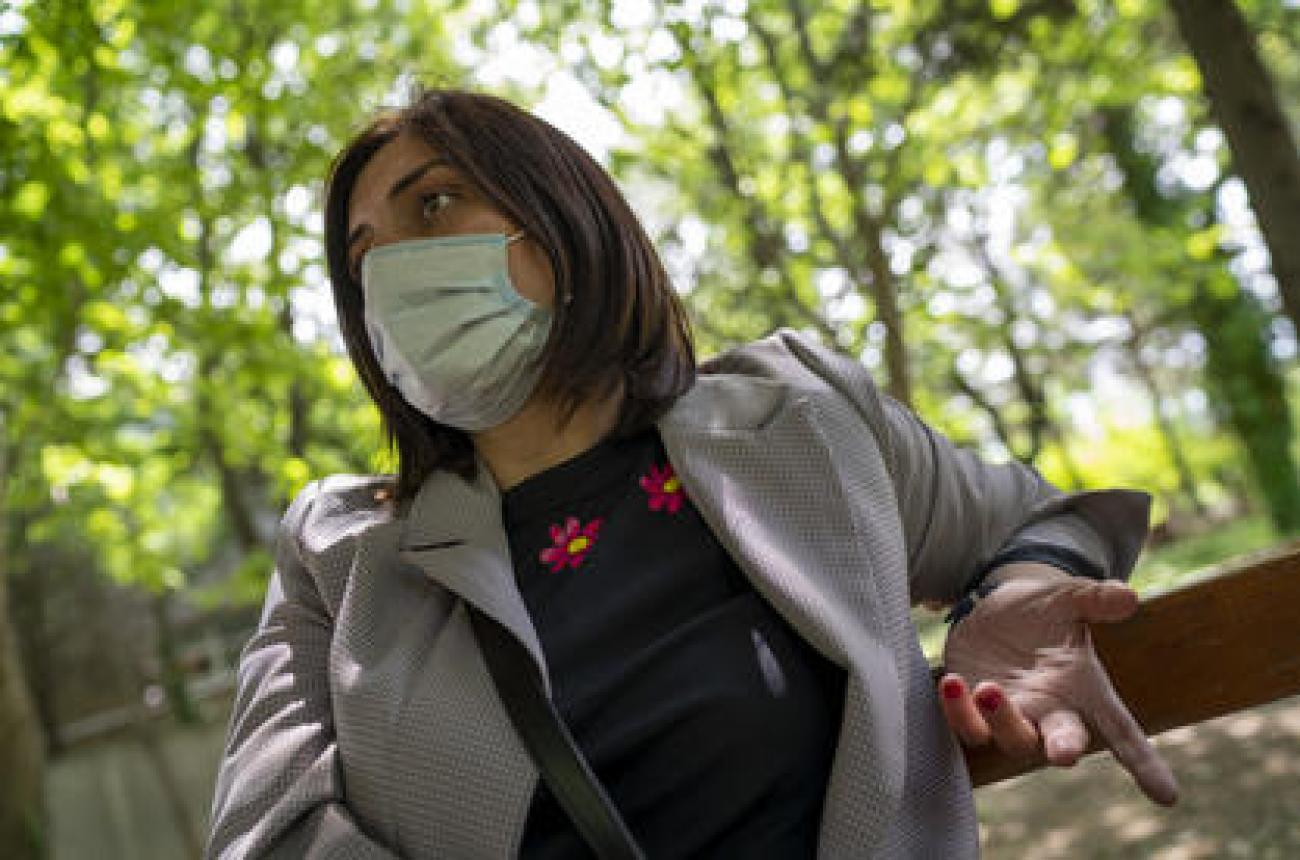COVID-19 Faces of Migration – Story of Bela (age 35), returnee from Belgium

In various parts of the world IOM is assisting thousands of migrants who have been affected by movement restrictions and are unable to work or return home.
Bela is a lawyer by profession, with two years of work experience in Tbilisi City Hall and six years in Tbilisi City Court. She loves her vocation. But to provide for her extended family and cover her father’s medical bills, in 2012 Bela decided to leave her life in Tbilisi and move to Italy. After two years of hard work in Italy as a caretaker for an elderly person, Bela left for Belgium, with a hope to find a better paid job. She spent six years in Antwerp. Bela applied for asylum in Belgium on economic grounds, which was denied. She still decided to rent an apartment and started working as a housekeeper. Even though she did not have the right visa, Bela still managed to find a job in a guesthouse. Later she worked in several hotels and finally, she was promoted to the position of housekeeping supervisor. Two months after her baby daughter Viviane was born, Bela went back to work, leaving her daughter at a day care centre.
As Bela could no longer continue to work without relevant documents, she decided to return to Georgia in February 2020 with her 2.5-year-old daughter. But her parents’ house, which was already too small for the family living there, did not have enough space for her and her child. Her friend offered Bela a small apartment to stay in. Conditions were poor, but it was free, and Bela was happy to accept whatever help she could get.
As part of IOM’s reintegration support Bela received medical assistance, which she used for her daughter’s medicine and checkups to treat bronchitis. Bela also received assistance for small business start-up – she started cattle breeding together with her cousin. IOM further helped her with finding a job. Employer at the Ambassadori hotel was so impressed with Bela, that she was offered a job as a housekeeper even though the hotel did not have any vacancies at that time. Unfortunately, due to COVID-19, the hotel had to close and let go of employees. Bela was among them. But she did not give up – soon she found another job at a hypermarket. Though this job was also suspended because of the restrictions related to the spread of pandemic, after some time Bela was able to go back to work. While with IOM’s support, Bela managed to improve her living conditions, Bela is still worried about her daughter – she works long hours and leaves her with a friend or Viviane’s grandmother, whom the child calls oma. Bela’s concerned, that her daughter does not have any Georgian friends, because she does not speak Georgian, so children refuse to play with her. For a single working mother, with little income, it is also hard to arrange day care for her daughter in the time of pandemic, when kindergartens are closed, and public transportation is not running. Now Bela is looking for a new job, with better income and has clear plans – she wants to start her own business in the service sector and offer customers cleaning service with high standards and compatible prices. She hopes that her background as a lawyer and the accounting skills she gained at her current job will allow her to take care of all administrative and legal aspects of her future business.
With little savings and sometimes no health insurance, migrant parents may be forced to continue working during the pandemic. COVID-19 appears to have so far entailed less severe infections for children than adults, with a higher number of children being asymptomatic or experiencing mild or moderate symptoms. However, the pandemic still has important negative impacts on children around the world, especially on those from populations in vulnerable situations, such as migrants and displaced persons.
With the increase in unemployment worldwide in sectors where migrants often work and a decrease in earnings due to the global recession, migrant parents may find themselves in precarious economic situations, unable to provide for the basic needs of their family. This may also be the case for parents who have migrated to work abroad leaving their children in the country of origin and who may not be able to support their family by sending remittances or may have to return to their country of origin because of unemployment.


